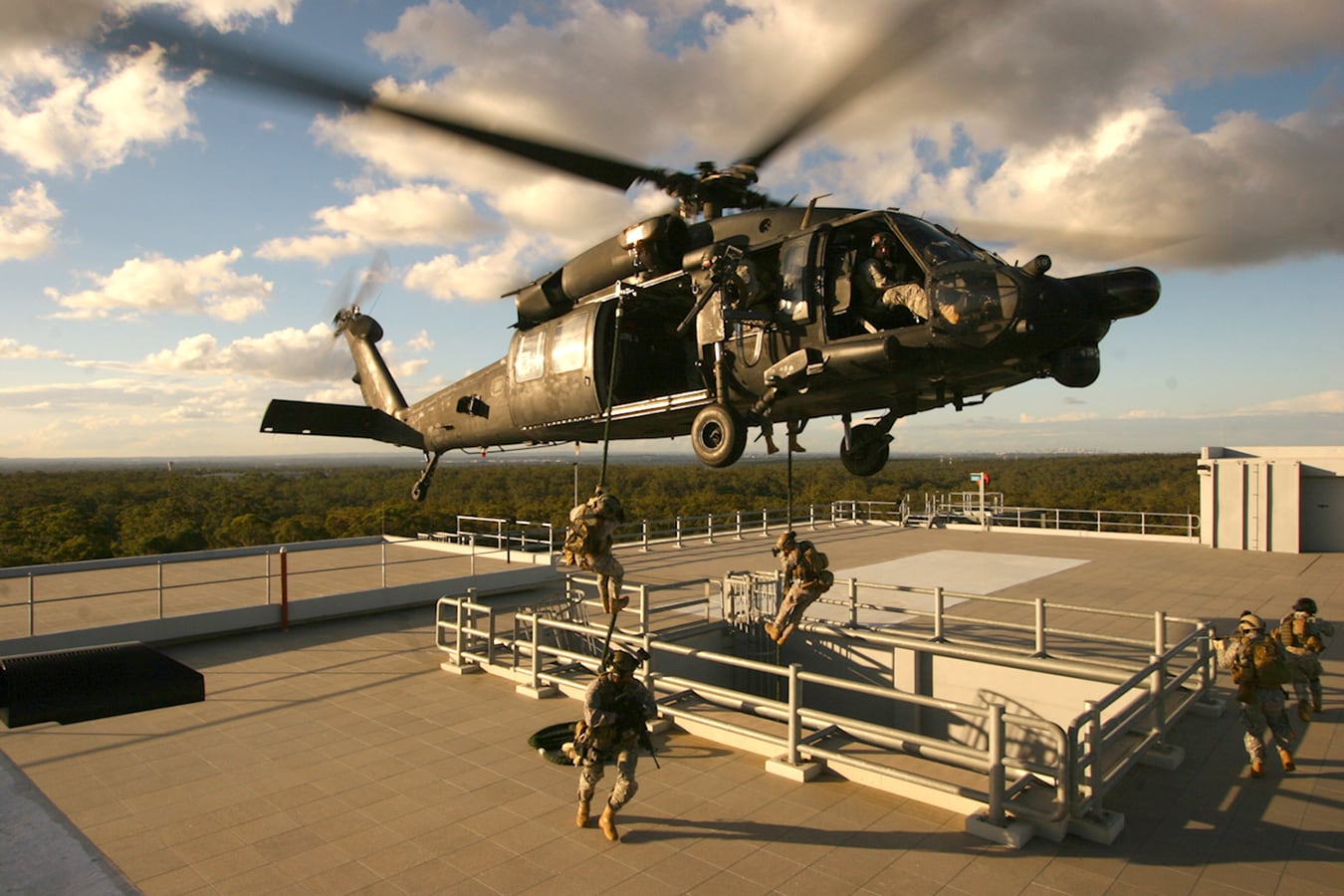HUNTSVILLE, Ala. — The U.S. Army’s space, cyber and special operations commands said they formed a “triad” to enhance operational capability across all domains.
The triad concept is to integrate and converge inherent capability from U.S. Army Space and Missile Defense Command, Army Cyber Command and Army Special Operations Command to provide campaign options to commanders globally.
“We know Army space capabilities will become even more formidable when used in concert with cyber and special operations,” Lt. Gen. Daniel Karbler, commander of Army Space and Missile Defense Command, said Aug. 9 at the Space and Missile Defense Symposium. “This new triad allows us to leverage individual strengths to maximum effect, providing flexible options to counter mis- or disinformation, cyberattacks and irregular asymmetric threats. These options include striking anywhere and anytime with surprise and retaliating or responding to adversary attack.”
In looking at the Army’s warfighting concept — multidomain operations — which lays out how the Army approaches adversaries and threats across all domains, the triad has a role to play whether that is in competition, in crisis or in conflict, Lt. Gen. Jon Braga, commander of USASOC, told reporters in a briefing at the conference.
“Information operations are extremely important, influence operations are extremely important, contributing to integrated deterrence is extremely important,” Braga said, but should operations move into conflict, the triad would have a different role to play, possibly “a combination of non-lethal effects like information operations, then perhaps a more kinetic [option], denying a capability or affecting a certain capability of an adversary — that would be a different flavor of approach.”
The idea for the triad was, in part, born out of Karbler’s previous experience at U.S. Strategic Command where he started to see the power of global integration. Karbler reasoned that Space, Cyber and Special Operations are similarly integrated.
But it wasn’t until Karbler’s deputy commander for operations, Brig. Gen. Isaac Peltier, a special operations officer, brought in that unique perspective that he realized the utility of space, cyber and special operations coming together regularly.
And while each brings its own unique capabilities, there are similarities.
“We all leverage intel extremely well for everything we do,” Braga said, “but there was more and more as we thought about it, a similarity, in a way, of our uniqueness, we are all transregional, we all work for multiple bosses. We all bring effects to try and have larger outsized effects for relatively small forces that contribute to a much larger joint force. We all approach it philosophically the same way.”
“We see this globally,” Lt. Gen. Maria Barrett, US Army Cyber Command commander, said. None of the triad participants are restricted to a particular region even though they support specific COCOMs. “It enables us to deliver more options across the spectrum of competition, crisis and conflicts,” she added.
Additionally, as the triad establishes a framework, “we can turn these things more quickly than done before,” Barrett said, and share data more easily “in an age where data is absolutely paramount.”
The triad leaders have formed a campaign plan to implement the new concept, but one of the ways it is already operating together is through exercises.
The triad is participating together in Project Convergence which is set to begin later this fall and is a wider campaign of learning the Army puts on annually to experiment with emerging concepts and capabilities.
While space capabilities will be used in the exercise, Karbler said, “it’s not just going to be a sole space solution in a particular use case. We’ve got to drive toward SOF, cyber, space integrated solution to that case study.”
That experimentation with combined capabilities will help teach the triad what works best and what it has to go back and tailor, he added.
“Some of the things we have are very unique and different, so just making sure those capabilities can talk to one another is part of the effort we’re working on,” Braga noted.
And Project Convergence and other exercises will give the triad the opportunity to show the Army and the Joint Force what it can offer when it comes together, he said.
Jen Judson is an award-winning journalist covering land warfare for Defense News. She has also worked for Politico and Inside Defense. She holds a Master of Science degree in journalism from Boston University and a Bachelor of Arts degree from Kenyon College.




